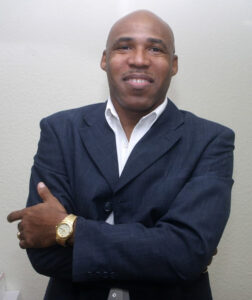
Preserving a legacy.
Dale Thomas, a 1986 graduate of Florida A&M University, is working to restore and share historical footage of the “Marching 100” and the university’s less known music ensembles through a digitization project that is now drawing national attention.
Thomas has more than 40 digitized videos published on YouTube with over 260,000 views across his channel. His most popular video “FAMU Marching Band: 1952,” has well over 52,000 views and has been featured in the latest episode of the Black Entertainment Television Facebook Watch series “We Own Homecoming.”
After uncovering dusty canisters of reel-to-reel film in the Foster Tanner Music Building, Thomas decided it would be unfair to the legacy of the music department and its programs if they were not repurposed.
“I thought the films needed to be digitized to save their historic contents,” Thomas, a media specialist with Leon County Schools, said. “In addition, the film needed to be placed in a more secure and climate-controlled environment.”
Thomas, who was a music education major and formerly worked at FAMU as a music librarian and assistant university librarian, said the film was neglected and that resulted in some of its deterioration. He refuses to let this continue.
“The work of digitizing the film is paramount to saving and preserving the history of the music and band program at Florida A&M University,” Thomas said. “Digitizing the film will also allow it to be easily accessible for researchers, documentary producers, and the media and public in general.”
With modern technology taking over the way we consume and distribute video, it was difficult for the media specialist to find equipment to view the film. He sought the help of a local film and photographic archivist at the State Archives of Florida and fellow alumni.
Bernard Kinsey, a highly esteemed FAMU alumnus who graduated in 1966, assisted Thomas financially with the digitization project. Kinsey said he has known Thomas for about eight years and appreciates his competence and ability to produce solid work.
“I was the first person he called to help him,” Kinsey said.
Kinsey was a member of the “Marching 100” during the renowned era of the band’s founder, William P. Foster. He and his wife Shirley Kinsey are avid supporters of the university and strongly believe that protecting the band’s history is crucial to FAMU’s legacy.
“I hope the university understands how important preserving our records are and not just let them sit in a vault and deteriorate,” Kinsey said.
Thomas was able to launch his project with a solid proposal that impressed both Kinsey and his wife. It was his concise plan and presentation that afforded him a grant from the Bernard and Shirley Kinsey Foundation for Arts & Education.
Nashid Madyun, director of the Meak-Eaton Black Archives, also worked with Thomas and supports his work. He believes current generations should know how much FAMU has influenced the nation.
“Of the many archived materials, the preservation of digital media is critical, as formats change and the mediums of previous decades can be in jeopardy of deterioration,” Madyun said. “Digitization is a means to save our treasures.
“The world should have access to what FAMU has cherished for so long,” he added.
Preserving FAMU’s legacy in the era of Facebook and YouTube has been no easy feat for Thomas. It is the significance and impact of his work that makes it all worth it.
“For many alumni band members, viewing the film gives them a sense of nostalgia and pride in knowing that they helped contribute to the legacy of the music and band programs at Florida A&M University,” Thomas said.